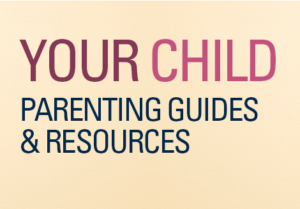Your Child — Parenting Guides and Resources [web resource]
 Is your baby meeting the typical developmental milestones? Do you have questions about your preschooler’s behavior and development? Read more »
Is your baby meeting the typical developmental milestones? Do you have questions about your preschooler’s behavior and development? Read more »
 With the new school year upon us, parents will be attending a back-to-school night at their child’s school. Many ask us, “What questions should I be asking?” Here are seven you might explore with your child’s teachers and principal. Read more »
With the new school year upon us, parents will be attending a back-to-school night at their child’s school. Many ask us, “What questions should I be asking?” Here are seven you might explore with your child’s teachers and principal. Read more »
 A new study finds that when students experience an academic setback such as a bad grade, the amount of cortisol—the so-called stress hormone—in their bodies typically spikes. For most students it drops back down to normal levels a day later, but for some it stays high. These students remain fixated on the setback and have difficulty moving forward. Read more »
A new study finds that when students experience an academic setback such as a bad grade, the amount of cortisol—the so-called stress hormone—in their bodies typically spikes. For most students it drops back down to normal levels a day later, but for some it stays high. These students remain fixated on the setback and have difficulty moving forward. Read more »
 DyslexiaHelp is a website for individuals with dyslexia, as well as parents, employers, and professionals of all kinds who work with individuals with dyslexia. Read more »
DyslexiaHelp is a website for individuals with dyslexia, as well as parents, employers, and professionals of all kinds who work with individuals with dyslexia. Read more »
 Dyslexia is a complex language problem. It involves not being able to break down a word into the sounds that make it up, as well as not being able to think or write about the sounds in a word. Research from the National Institutes of Health has shown that dyslexia affects 5–10 percent of the U.S. population, with estimates as high as 17 percent. Read more »
Dyslexia is a complex language problem. It involves not being able to break down a word into the sounds that make it up, as well as not being able to think or write about the sounds in a word. Research from the National Institutes of Health has shown that dyslexia affects 5–10 percent of the U.S. population, with estimates as high as 17 percent. Read more »
 Hundreds of millions of people worldwide have been diagnosed with an anxiety disorder or related mood or mental health issue. The majority of those diagnosed or struggling with an anxiety disorder don’t receive treatment or have access to the information, treatment, or tools they need during their journey to recovery. Read more »
Hundreds of millions of people worldwide have been diagnosed with an anxiety disorder or related mood or mental health issue. The majority of those diagnosed or struggling with an anxiety disorder don’t receive treatment or have access to the information, treatment, or tools they need during their journey to recovery. Read more »
 Just over a year ago, CHC opened its doors to a new Intensive Outpatient Program (IOP) for teens in Palo Alto. Now, in collaboration with Stanford Children’s Health, the program is expanding to serve more adolescents struggling with self-harm, suicidal thoughts and behaviors, severe anxiety and depression.
Just over a year ago, CHC opened its doors to a new Intensive Outpatient Program (IOP) for teens in Palo Alto. Now, in collaboration with Stanford Children’s Health, the program is expanding to serve more adolescents struggling with self-harm, suicidal thoughts and behaviors, severe anxiety and depression.
Read more »
 In every classroom, teachers try to engage students who have a variety of temperaments: extroverts, introverts and ambiverts. They work with children who crave sensory stimulation and with those who are highly sensitive to noise and visual distraction.
In every classroom, teachers try to engage students who have a variety of temperaments: extroverts, introverts and ambiverts. They work with children who crave sensory stimulation and with those who are highly sensitive to noise and visual distraction.
While one temperament is not better than any other, introverted students are often “overlooked, undervalued and overstimulated in our schools,” said Heidi Kasevich, a 20-year teaching veteran and director of education for Quiet Revolution, an outgrowth of Susan Cain’s best-selling book on the power of introverts. Read more »
 Dyslexia affects every instructional task a student will face in school. We are a language-based society with deeply rooted traditions that rely on reading and writing. One in five students has a language-based learning disability, the most common of those being dyslexia. Fortunately, there is a window of opportunity to tackle and remedy dyslexia at an early age. Read more »
Dyslexia affects every instructional task a student will face in school. We are a language-based society with deeply rooted traditions that rely on reading and writing. One in five students has a language-based learning disability, the most common of those being dyslexia. Fortunately, there is a window of opportunity to tackle and remedy dyslexia at an early age. Read more »

Chances are, your child knew before you. She was the one sitting in class watching other kids figure out the answers before her. He was the one who pretended to read along with the class. She was the one who couldn’t remember the math facts when being timed. He was the one the teachers first told, “Pay better attention” and “You’re not trying hard enough.” Read more »